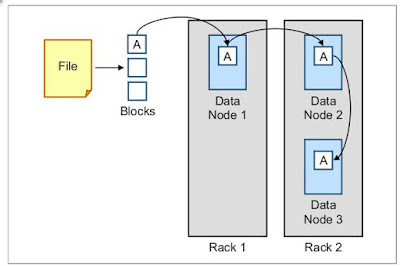Google Cloud Big Data Solutions: Comprehensive Tools and Services Overview
Introduction
Are you leveraging the power of big data to drive your business forward? According to Gartner, by 2022, 90% of corporate strategies will explicitly mention information as a critical enterprise asset and analytics as an essential competency. Google Cloud offers a robust suite of big data solutions designed to manage, analyze, and derive insights from vast datasets. With its scalable and flexible tools, Google Cloud empowers businesses to turn data into actionable intelligence. In this article, we'll provide an overview of Google Cloud's big data solutions, highlighting their benefits and practical tips for effective implementation.
Section 1: Background and Context
What is Google Cloud?
Google Cloud is a comprehensive cloud computing platform that provides a wide range of services, including computing power, storage, and databases. Google Cloud's big data solutions enable businesses to manage, analyze, and gain insights from their data efficiently, leveraging the scalability, flexibility, and performance of the cloud.
The Importance of Big Data Analytics
Big data analytics involves examining large datasets to uncover patterns, trends, and insights that drive decision-making. As data continues to grow, businesses must adopt advanced technologies to manage and analyze information efficiently. Google Cloud offers powerful tools and services to support big data analytics, allowing organizations to gain meaningful insights and stay competitive.
Section 2: Key Points
Essential Google Cloud Tools and Services for Big Data
- BigQuery: A fully managed data warehouse that allows for fast SQL queries on large datasets. BigQuery offers real-time analytics and seamless integration with other Google Cloud services.
- Cloud Pub/Sub: A messaging service for real-time event data. Cloud Pub/Sub enables businesses to collect, process, and analyze streaming data efficiently.
- Cloud Dataflow: A unified stream and batch data processing service. Cloud Dataflow simplifies data processing, allowing businesses to build complex data pipelines.
- Cloud Dataproc: A managed Hadoop and Spark service. Cloud Dataproc offers scalable and cost-effective processing of large datasets.
- Cloud Storage: Provides scalable object storage for big data. Cloud Storage is designed for durability, availability, and security, making it ideal for storing vast amounts of data.
Benefits of Using Google Cloud for Big Data Analytics
- Scalability: Google Cloud offers scalable solutions that can handle growing data volumes. Businesses can easily expand their resources as needed, ensuring optimal performance.
- Cost-Efficiency: Google Cloud provides a pay-as-you-go pricing model, allowing businesses to pay only for the resources they use. This helps optimize costs and reduce capital expenditure.
- Flexibility: Google Cloud offers a wide range of tools and services, enabling businesses to choose the best-fit solutions for their specific needs.
- Security: Google Cloud implements robust security measures to protect data. Businesses can leverage encryption, access controls, and compliance certifications to ensure data privacy.
Use Cases and Industry Applications
- Healthcare: Google Cloud is used for analyzing patient data, improving diagnostics, and enhancing treatment plans.
- Retail: Retailers leverage Google Cloud to analyze customer behavior, optimize inventory, and personalize marketing strategies.
- Finance: Financial institutions use Google Cloud for risk management, fraud detection, and real-time trading analytics.
Section 3: Practical Tips and Examples
Implementing Google Cloud for Big Data Analytics
- Assess Your Needs: Determine the specific requirements of your data management and analytics processes. Choose Google Cloud services that align with your goals.
- Plan for Security: Implement strong security measures, including encryption, access controls, and regular audits, to protect sensitive data.
- Optimize Costs: Monitor Google Cloud usage and optimize resources to avoid unexpected expenses. Utilize cost management tools provided by Google Cloud.
Real-World Examples
- Spotify: Uses BigQuery for real-time analytics, content delivery, and personalized recommendations to millions of users.
- Lush: Employs Cloud Dataflow and Cloud Pub/Sub for data-driven insights, enhancing product development and customer engagement.
Conclusion
Google Cloud offers a powerful suite of tools and services for big data analytics, enabling businesses to manage, analyze, and derive insights from their data efficiently. With benefits like scalability, cost-efficiency, flexibility, and security, Google Cloud provides robust solutions for optimizing data management and analytics. By understanding the essential Google Cloud services and implementing practical tips, companies can harness the power of big data to drive innovation and achieve their goals. Embrace the future of data analytics with Google Cloud, and unlock the full potential of your big data.




Comments
Post a Comment